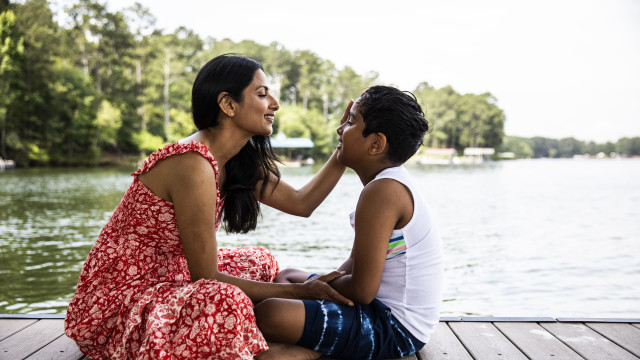How Parents can Impart Wholistic Wellbeing to their Children

Although I look back kindly on my childhood and on the valuable life lessons I was taught, I regret that one I wasn’t taught was that of the indelible bonds which exist between everything: the mind and the body, the soul and the earth, corporate lives and domestic lives... I sometimes find myself pondering what journey my life would have taken if I had been introduced to Wholistic Wellbeing as a child, and how differently I might have done things if I’d known of the all-encompassing consequences of my actions.
Having suffered from burnout as a CEO in the past and found solace and salvation in Wholistic Wellbeing, I want to help others find Wholistic Wellbeing to prevent damage early on rather than correct it after it has happened. As a father, this is a matter of urgency to me. I want my children to grow up in a world where they aren’t just taught about grammar, equations, and the difference between right and wrong, but also about balance, nuance, happiness and fulfilment. I want to be able to ask my grandchildren what they learned at school today, and for them to answer “we learned how to be happy”.
As a society, we continue to value book-smart academic intelligence – important though it is – to the detriment of emotional intelligence. We are so hellbent with making our kids into little learning machines that we forget to teach them how to get in touch with their emotions, articulate their feelings, or communicate their fears in ways that are rational and productive. Statistics of child and teen depression nowadays confirm this bleak picture, with the rate rising steadily among children aged 6 to 17: in 2003, the rate stood at 5.4%; in 2007, it stood at 8%; and in 2011-2012, it stood at 8.4%.
We need to teach our children to meditate: to travel to a quiet place in their mind where they become the master of their emotions and sift through their thoughts to reassess and recuperate. We need to teach our children that it’s ok to slow down in a world where everyone seems to be constantly rushing.
We also need to teach our children financial responsibility. I know that’s quite a gear shift from meditation, but it’s equally vital to Wholistic Wellbeing: financial responsibility teaches independence, self-control, and moderation, virtues which can be applied outside a financial context and in our lives more generally, making us more reasoned, balanced and empowered. In fact, I identify Financial Wellbeing as one of the seven pillars that, collectively, make up Wholistic Wellbeing.
I want to inspire parents and educators to teach children about finance as early as possible. Rather than delaying their financial education in a way that sensationalises money into something so complicated as to defy comprehension, we should engage children in the financial decisions that concern them so that they understand money better and learn to handle it wisely from a young age. Money can often be a source of anxiety: rather than abstracting it as part of an adult conversation, we need to demystify it for our children.
Parents can impart Wholistic Wellbeing to their children by teaching them to see, for instance, money and meditation not as inimical, but rather as interlinked. Granted, we can’t teach Wholistic Wellbeing in the same way we teach an academic discipline like history or arithmetic – but we can inspire an approach to life that appreciates (and indeed celebrates) the karmic bonds between us and our environment; the respect we should afford others in order to respect ourselves; and the multifaceted nature of health not as something purely physical but that is also emotional, social, and more. Inspire children to be kind, happy, and altruistic; to see the world not through their own eyes but through the eyes of others; to love not selfishly but empathetically; and to embrace wellbeing in a truly wholistic way.









